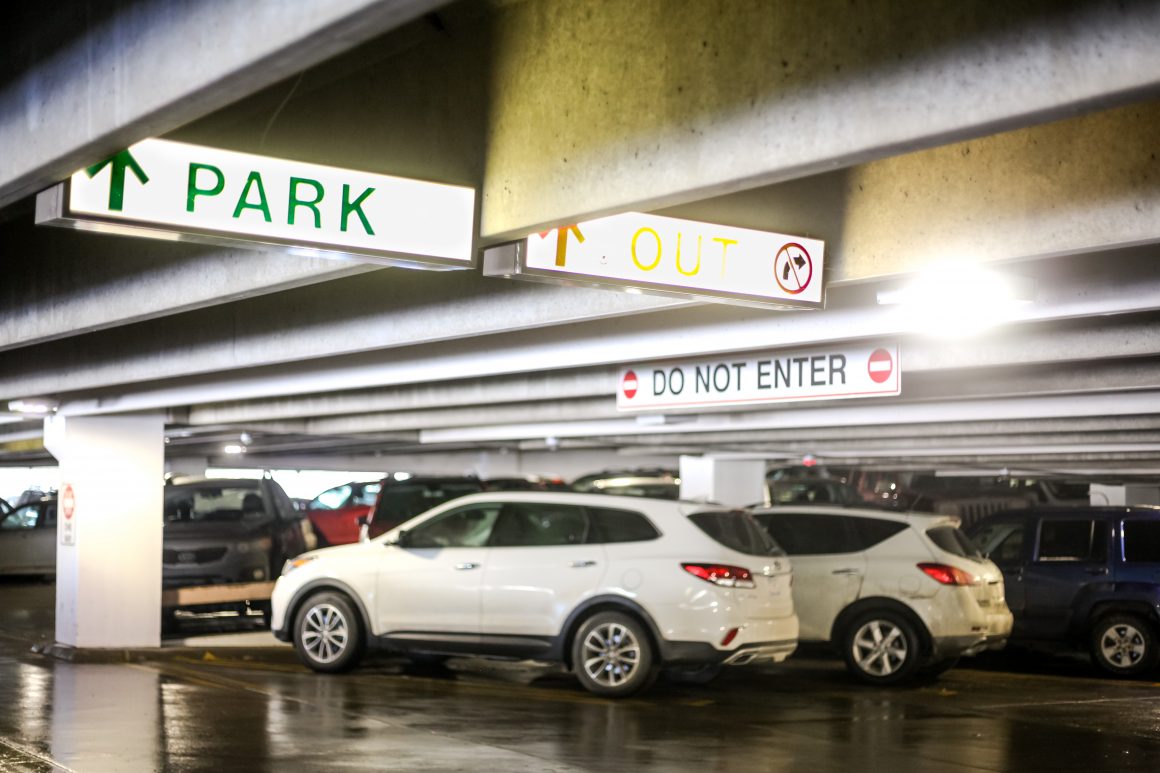
Electric and autonomous vehicles to pose challenges for U of C, says parking director
By Ashar Memon, February 2 2018 —
The University of Calgary will have to adapt its parking services on campus to address the growing popularity of electric and autonomous vehicles, Parking and Transportation Services associate director Susan Austen says.
In an interview with the Gauntlet, Austen outlined how Parking and Transportation Services has evolved at the U of C in an increasingly digital world.
During her time at the department, Austen said she has seen a shift in payment methods to credit cards instead of cash. She also added that there are fewer staff in positions such as lot attendants.
“Ten years ago, you would see a lot more people out in the field and [now] it’s definitely got a lot more automated,” she said.
According to Austen, the demand for parking has also grown at the U of C over the years due to an increase in the number of students on campus.
When asked where she sees the future of parking headed based on current trends, Austen predicted that soon there will be more electric vehicles on the road.
“I think there’s going to be a bit of a push towards providing access for electric vehicles,” she said. “That is going to be something that we have to put into the design of the system because there’ll be so much demand.”
The U of C currently has two electric vehicle charging stations beside the Energy Environment Experiential Learning (EEEL) building, both of which were added in 2013. While Austen said the U of C does not have immediate plans to build more charging stations, it’s something her department will have to consider in the next few years.
Universities across the United States and Canada have recently begun investing in on-campus charging stations. Meanwhile, the City of Calgary is currently developing a proposal to create a network of 15–20 fast charging stations around southern Alberta.
Beyond electric vehicles, carmakers are also racing to bring fully autonomous vehicles to the market. Austen said that this could prove a problem for the department itself.
“Even if you got 10 per cent of the people sending their vehicles home again and just coming back later, you’ve changed the traffic pattern dramatically but you’ve also reduced the need for parking,” she said.
Semi-autonomous vehicles are already available and some analysts predict that fully-autonomous vehicles could become the norm in Canada by 2025. Many parking officials will have to face the dilemma of investing in new parking spaces in a time where autonomous vehicles and ride-sharing services could make parking obsolete.
“Are you going to park [your car] and pay when you can send it home? We laugh about it and we think it’s far away now, but I don’t think it really is,” she said. “What do you do with parking once you don’t need it anymore?”
